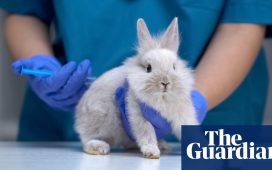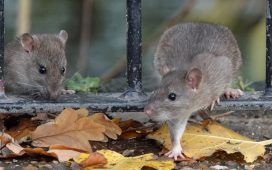Fur sales could be banned after Brexit under plans being considered by the Department for Environment, it has emerged.
The UK was the first country in Europe to ban fur farming in 2000, but sales of some furs are still legal in this country and across the EU.
The move to an outright ban is reportedly being spearheaded by the Tory peer Zac Goldsmith, minster at the Department for Environment, Food and Rural Affairs, and also a close friend of Boris Johnson’s partner, Carrie Symonds, who last year described anyone who wanted to buy fur as “really sick”.
Once the UK leaves the single market, it will have the power to unilaterally ban fur sales, something it is now considering.
A spokeswoman for Defra said: “We have some of the highest welfare standards in the world, and that is both a source of pride and a clear reflection of UK attitudes towards animals.
“Fur farming has rightly been banned in this country for nearly 20 years. Once our future relationship with the EU has been established there will be an opportunity for the government to consider further steps it could take in relation to fur sales.”
People for the Ethical Treatment of Animals, which has been campaigning against fur sales for decades, says hundreds of fashion designers and brands – including Coach, Giorgio Armani, Gucci, Donna Karan, Calvin Klein, Michael Kors, Ralph Lauren and Versace – have already stopped using fur.
Peta helped changed the face of activism using nudity and gore to get its message across. Many of its adverts were banned but its slogan “I’d rather go naked than wear fur”, used in campaigns featuring celebrities including the model Naomi Campbell, the actor Eva Mendes and the musician Pink, had such resonance it survived for more than three decades before being retired this year.
According to reports, Goldsmith met the anti-fur organisation Humane Society International in May to explore the issues around the fur trade.
Government sources said that during the Brexit transition period, which ends on 31 December, “it is not possible to introduce restrictions relating to the fur trade as this would restrict free movement within the EU single market”.
But once Brexit happens, “there will be an opportunity for the government to consider further steps it could take in relation to fur sales”.
Goldsmith argued that Brexit meant “whatever barriers may have prevented us from raising standards on imports at the point of entry” would have gone.
The British Fur Alliance is gearing up to fight any move to ban sales, arguing that natural fur is an antidote to the environmentally damaging cheap fashion and if ethically sourced should not be prohibited.
“Natural fur is inextricably linked to the environment: it is a sustainable material which represents heritage, quality and individuality. Environmental stewardship is one of the foundations of the contemporary fur trade and fur is part of the solution to the ‘fast’ fashion problem,” it said.







